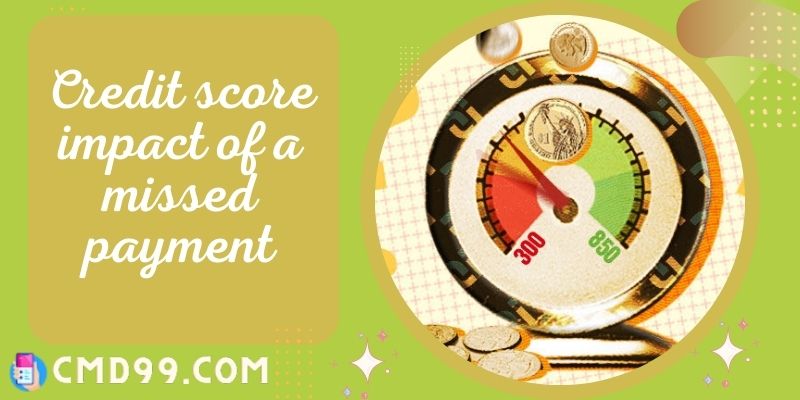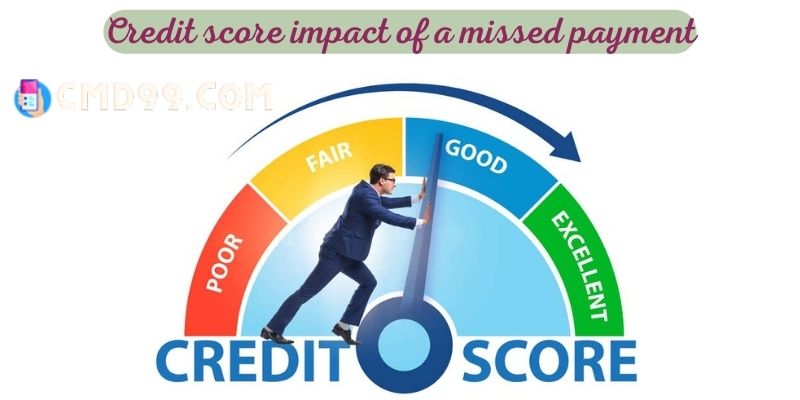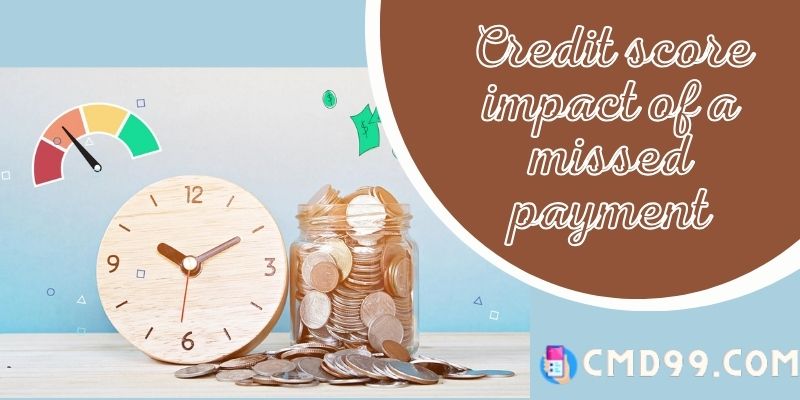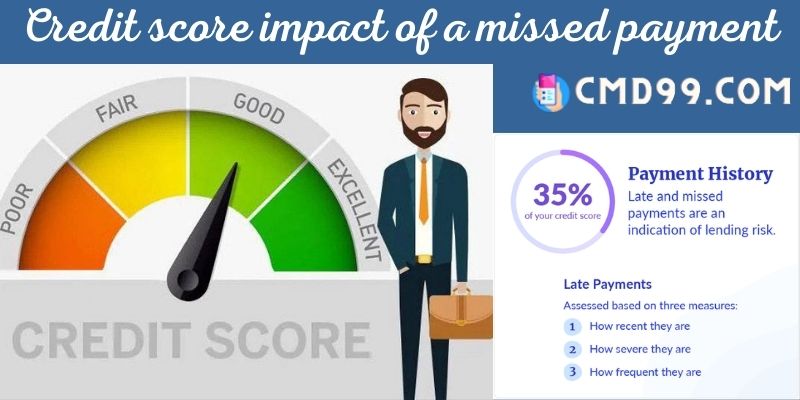Anyone who has ever forgotten to use their credit card understands how frightening it can be when you realize it. You begin to consider the amount of late fees you will incur as well as the Credit score impact of a missed payment.
It makes sense that you would feel this way given that your payment history makes up around 35% of your FICO® Score. Nobody wants their Credit score impact of a missed paymentto suffer because of a genuine error. Prior to becoming concerned, you need understand how late credit card payments operate and whether or not your payment would even be considered late. cmd99.com will provide for you more information about Credit score impact of a missed payment.
What’s considered a late credit card payment?

This would make a clever test question. The simple response is “any credit card payment made after the due date,” but the credit bureau has a different interpretation.
Until your payment is at least 30 days past the due date, your card issuer cannot mark it as being past due with any of the three credit bureaus. This is so because all of those credit bureaus adhere to the Industry Standard for Reporting Account Delinquency, which was established under the Metro 2 Reporting Format. This is how it goes.
Every creditor, not just those who report to the three major credit reporting agencies, receives a status code concerning your account from your card issuer on the reporting date. That code represents the current status of your account. Accounts with a Code 11 (current accounts) are those that are zero to 29 days past due. Accounts that are 30 to 59 days past due are where the codes for reporting late payments begin.
This does not imply that delaying your credit card payments is a wise move. As soon as the due date is missed, your card issuer may still impose a late fee and require you to pay interest on the outstanding balance. Additionally, an increase in interest rates could befall you.
What’s considered a late mortgage payment?
The majority of mortgage lenders offer a two-week grace period during which your payment will be received without incurring any penalties. To find out how long your grace period is, you’ll need to call your mortgage lender.
Credit score impact of a missed payment

If your payment is received before the 30-day deadline, your credit score is unaffected. Any later and you risk damaging your score. Your score won’t decline by a certain amount because the severity of the damage is determined by a number of variables, including:
- Your present credit rating
- your track record of payments
- How tardy was your payment
If you have a high credit score and a clean payment history, you stand to lose the most. For instance, if your credit is good, one late payment might not hurt it. With just one credit card reported as 30 days past due, however, a credit score of 780 that has never had a late payment drop by 110 points. Your score decreases as you go past 60 and 90 days past due.
If you already have a poor credit score and have had a few late payments reported on your credit report, additional one would probably drop your score by another 60 to 80 points. And each missed payment makes it more difficult to raise your credit score.
How long do late payments stay on your credit report?
Although late payments are recorded in your credit history for seven years, your credit score may not be negatively impacted for that entire time. Every bad item on your credit record loses some of its impact over time. The weighting is heaviest for recent activity (the previous two years). Your score will begin to rise in around six months if the other factors on your credit report remain mostly the same (no new negative information).
By the way, not every account will appear on your credit reports. Because creditors are not obligated to submit separate reports to each credit bureau, some merely provide information to one or two. If a late payment doesn’t appear on one of your reports, it generally won’t (until it goes into collections) because the credit reporting companies don’t share information.
How to handle late payments

Avoiding late payments in the first place is the best course of action. There are only two scenarios that could result in a late payment: running out of money or forgetting to make it by the deadline. If the former is true, you should change your spending patterns because the longer credit card debt goes unpaid, the larger the balance will get.
It’s simple to forget to make a credit card payment, especially if you use several cards to get the most cash back or incentives. The best method to prevent this is to set up automatic payments on all of your cards.
Making the payment soon away is most important if you miss a deadline. By sending the payment in before it becomes 30 days past due, you’ll avoid any problems with your credit score. Even if it has been longer, the sooner you pay, the sooner the bleeding can be stopped.
Give the lender or credit card business a call as well if this is your first missed payment with that particular card issuer. This is why. A penalty rate on your credit card is another significant potential cost you can encounter, in addition to the blow to your credit score and a potential late payment fee. When specific terms and conditions are broken, certain issuers will change your account to one with a very high interest rate. A late payment may be acceptable.
You can be eligible for a discount from the credit card company the first time. Request that the creditor preserve your existing interest rate while waiving the late fee and removing the late payment from your credit report. Almost never is this kindness requested again. Think of it as a sneaky way to shield your score from an occasional mistake. Create an automatic payment plan that pays the minimum amount required each month to prevent a recurrence.
You shouldn’t take a late credit card payment lightly because it might harm both your finances and credit score. However, if you pay it off within 30 days and take precautions to avoid it in the future, the worst-case situation is that your card company may still add a late fee to your account.

